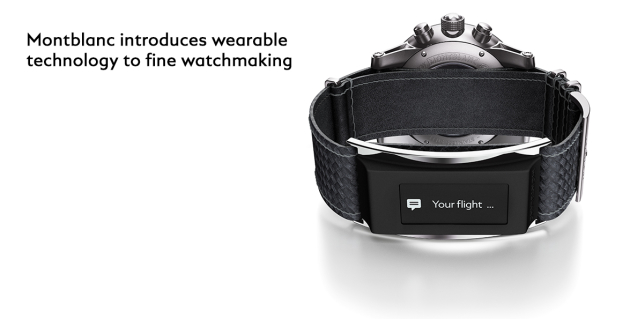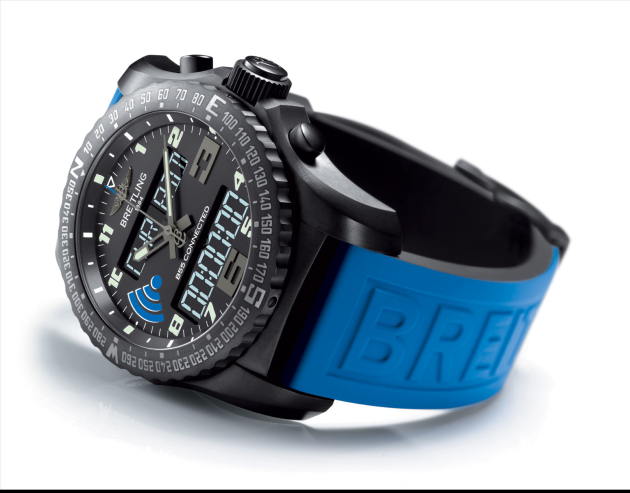Now that luxury brand Hermes has teamed with Apple to launch the Hermes Smart Watch, it takes the digital device that can pay for your groceries, track your fitness activity, control your music—and, oh yes—tell time—to a whole new style level, thanks to that handsome leather strap. So does that mean mechanical watches, well, have to watch out for stiff competition from these new wrist gadgets?
According to recent stories in Forbes, Fortune, and the New York Times T Magazine, the short answer is no. High-end timepieces aren’t going away. In fact, some luxury watch brands, including Tag Heuer and Montblanc, are about to debut their own horological smart watches. And Breitling’s B55 Connected, shown above, connects wirelessly to a smartphone app that shares the watch’s timekeeping and functionality. But I was curious to see what a veteran watch collector and dealer who truly cares about the mechanical marvels that make a fine timepiece tick would have to say on the subject. So I spoke to my friend Bob Markovich, the proud owner of 20 vintage timepieces—that he actually wears—including two Rolexes, a World War 1 Longines, an Omega Seamater, and numerous Hamiltons.

Montblanc’s $390 e-Strap is designed to team with its TimeWalker watches (priced from $3,700 to $5,700).
David Perry: According to the New York Times T Magazine, smartwatches will account for 20 to 30 percent of watch sales above $50 in 2015. How serious do you think the smart competition is to luxury labels?
Bob Markovich: I’ve seen the quartz explosion in the early 1970s and they were going to be the future and put the Swiss watches out of business, but it didn’t happen. The early versions, such as the Hamilton Pulsar, were very expensive, but within a few years, when Casio came along, the prices dropped. So what I predict is that in a few short years we’ll be seeing cheaper smart watches that may threaten the lower end of the watch market, but will be unlikely to threaten anything costing $500 to $1,000 or more.
DPA: Why is that?
BM: Because at that point, a watch is more than a timepiece. It’s a status symbol and a beautiful piece of machinery to show off like a really great car. If there is an explosion of smartwatches, it will be at the lower end of the market.
DPA: So you think luxury watch brands should take the smart competition in stride?
BM: Yes. The Rolexes of the world shouldn’t be worried. One reason digital watches didn’t hurt that sector of the market is because the only thing they did was tell time. Unlike analogue watches that let you see the past and plan ahead, they didn’t provide any context. That’s why analogues, which have been around for hundreds of years, still rule the day.
DPA: But smart watches do a lot more than tell time.
BM: But their size is limiting. You won’t be doing everything on your watch, like your phone or a tablet, because you can only make the screen so large. It’s not very useful for reading or checking emails; you’d have to squint. And like all digital devices, after a couple of years, they’re obsolete. So do you really want to invest $15,000 in a gold smartwatch that will quickly become outdated. I guess the melted down gold would be worth something. Whereas, you’ll have a Rolex or other luxury timepiece forever.
DPA: Some industry experts are predicting that the rise of the Apple Watch may even be a gateway to a nicer watch down the road for younger consumers who are used to telling time with their cellphones. What do you think?
BM: That’s a very optimistic comment. It is a hassle to dig into your pocket and pull out your phone to check the time—just as it was when people carried pocket watches. As history shows, a wristwatch is much more practical.



Leave A Comment